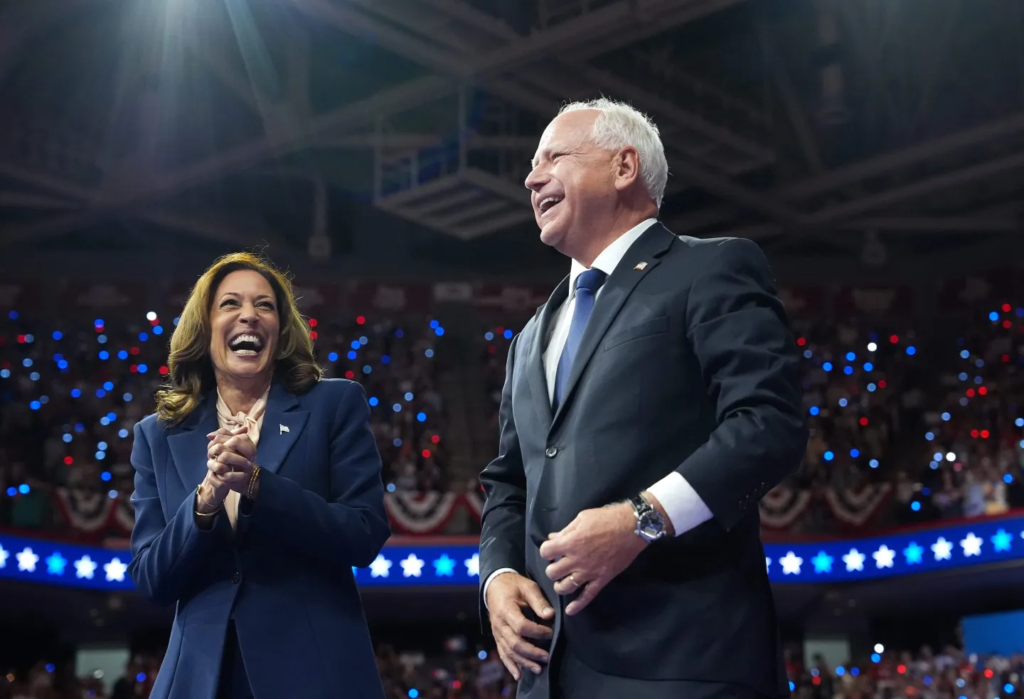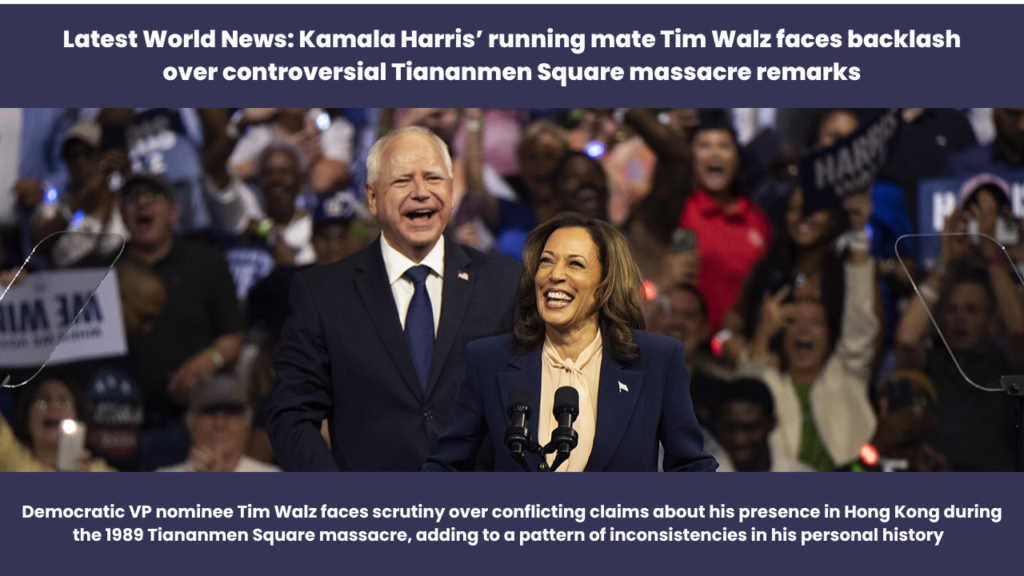Minnesota Governor Tim Walz and Kamala Harris‘ running mate, the Democratic vice-presidential nominee, is facing scrutiny after multiple reports revealed inconsistencies in his statements about being in Hong Kong during the 1989 Tiananmen Square massacre. A 2019 interview resurfaced by CNN on Tuesday shows Walz claiming he was in Hong Kong at the time, contradicting publicly available evidence.

China‘s military crackdown on pro-democracy demonstrators in Beijing on June 4, 1989, left at least 500 dead after a seven-week-long protest. Walz had previously stated during a 2014 U.S. House hearing commemorating the massacre’s 25th anniversary that he was in Hong Kong in May 1989. However, reports from Minnesota Public Radio suggest that Walz was likely still in Nebraska at that time, based on public records. Evidence indicated that he did not leave for China until August of that year, as per an Associated Press report.

Walz also exaggerated his travel to China, once claiming to have visited more than 30 times. His campaign later corrected this figure to approximately 15 trips. Minnesota Public Radio also revealed a photograph dated May 16, 1989, showing Walz working at a National Guard Armory in Nebraska, further contradicting his timeline. An August 1989 article from a Nebraska newspaper mentioned that Walz was preparing to leave for China later that month.
What did Walz say earlier?

During the 2014 testimony, Walz described being on the ground in Hong Kong as events unfolded. “I still remember the train station in Hong Kong… there was a large number of people — especially Europeans — very angry that we would still go after what had happened,” he said. as quoted by AP. Despite these claims, records suggest Walz did not arrive in China until months later through a Harvard-affiliated program called WorldTeach.

Republicans have seized upon these inconsistencies, accusing Walz of misrepresenting key details of his past, including his connection to China. Walz’s extensive involvement with China has drawn particular attention, with critics noting his time teaching in the country, his honeymoon there, and multiple subsequent visits with American exchange students, the AP report added.

Kyle Jaros, a global affairs expert at the University of Notre Dame, commented that it has become “a well-worn tactic to attack opponents simply for having a China line in their resumes,” as quoted by the Associated Press. Nonetheless, these revelations add to the growing list of discrepancies in Walz’s personal and professional narratives, raising concerns about his credibility during the campaign.


